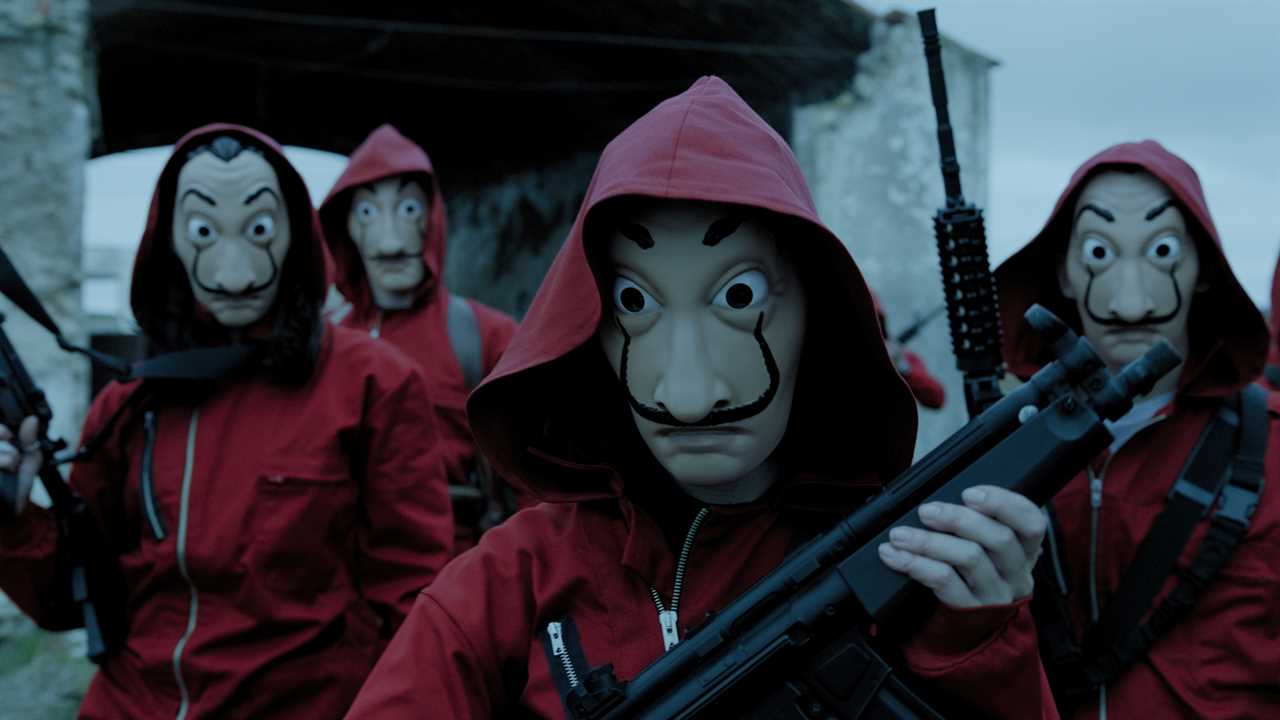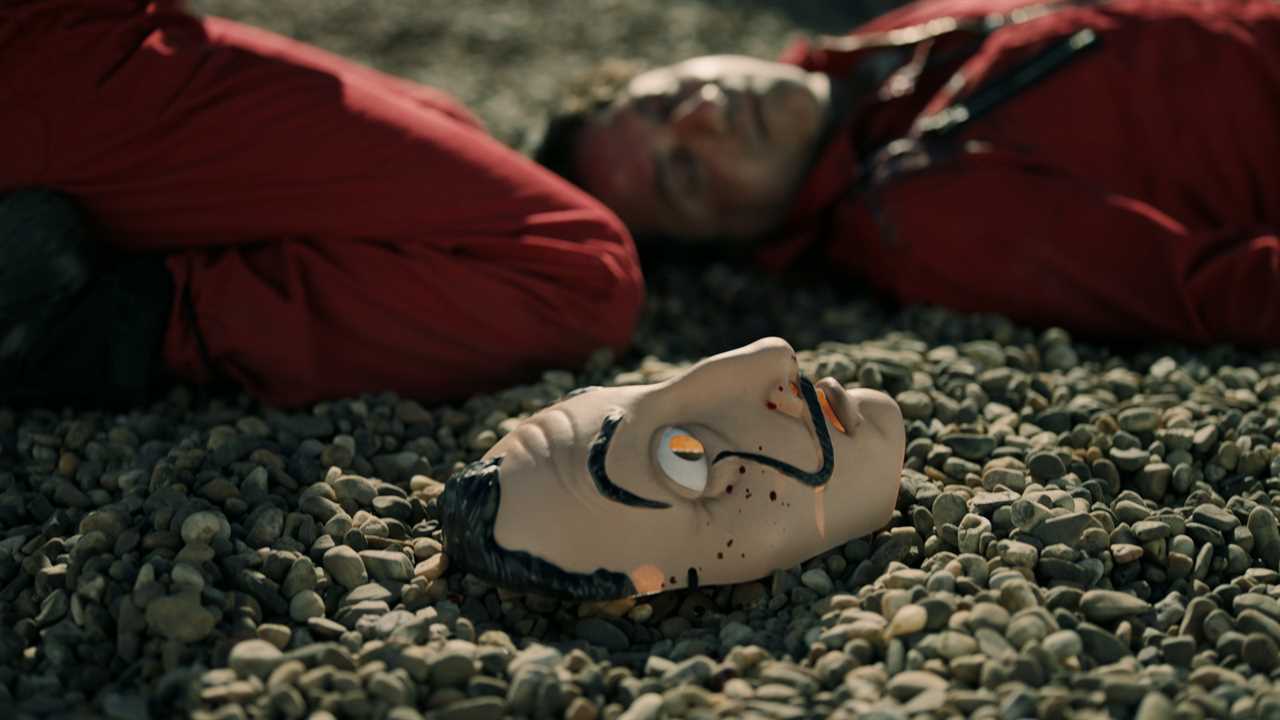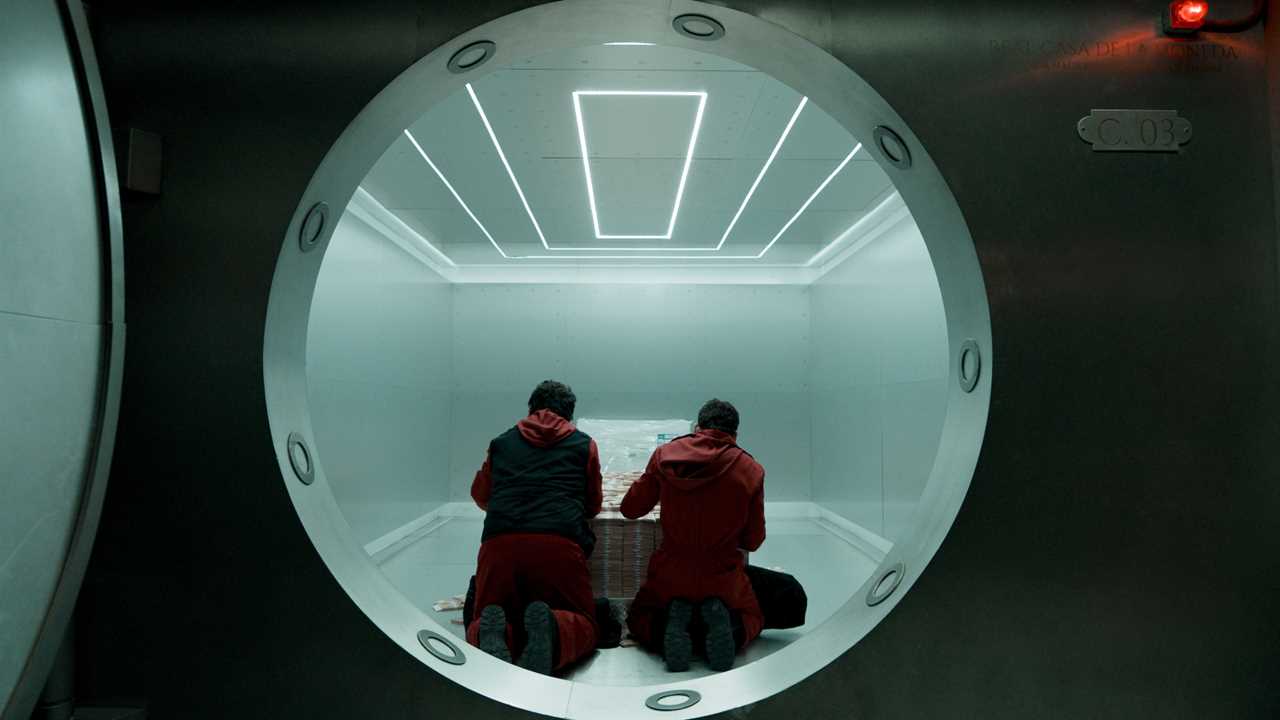MONEY Heist has had fans hooked since it first dropped on Netflix in 2017.
The show is now back for a fifth season, but viewers are often wondering if the crime drama is based on a true story.
- The best series on Netflix
- The best movies on Netflix
- New on Netflix: What to watch this week

Is Money Heist based on a true story?
Money Heist follows a gang of expert robbers who plan to rob the Royal Mint of Spain in an ambitious 11 day heist.
However the tale is a fictional story created by Alex Pina.
But, some elements from the Netflix thriller have been taken from real life.
For example the masks worn by the robbers are a direct reference to Spanish surrealist artist Salvador Dalí and his iconic moustache.

According to the Express, he may have been chosen due to his rejection of societal norms in his work in the early 20th Century, something which the gang are evoking in the 21st Century.
The gangs red jumpsuits could also be a reference to socialism and the ideals of the distribution of wealth among the people.

Did the Royal Mint of Spain get robbed?
The Royal Mint of Spain has never been robbed.
However, according to one Quora reader, there was once a robbery.
They write: “During the civil war, the gold reserves of the Bank of Spain were moved to the URSS in order to ‘protect’ them and have never been returned.”
When filming Money Heist, despite the fact it is based on the Royal Mint of Spain, the exterior of the building used in the series is instead the Spanish National Research Council.
What does La Casa de Papel mean?
Spanish phrase La Casa de Papel means ‘The House of Paper’, ‘House of Paper’ and/or ‘The Paper House’.
Paper is a slang term for money, so it translates to ‘The Money House’.
This is the title the show was given in Germany, where La Casa de Papel is called Haus des Geldes or ‘House of Money’.






